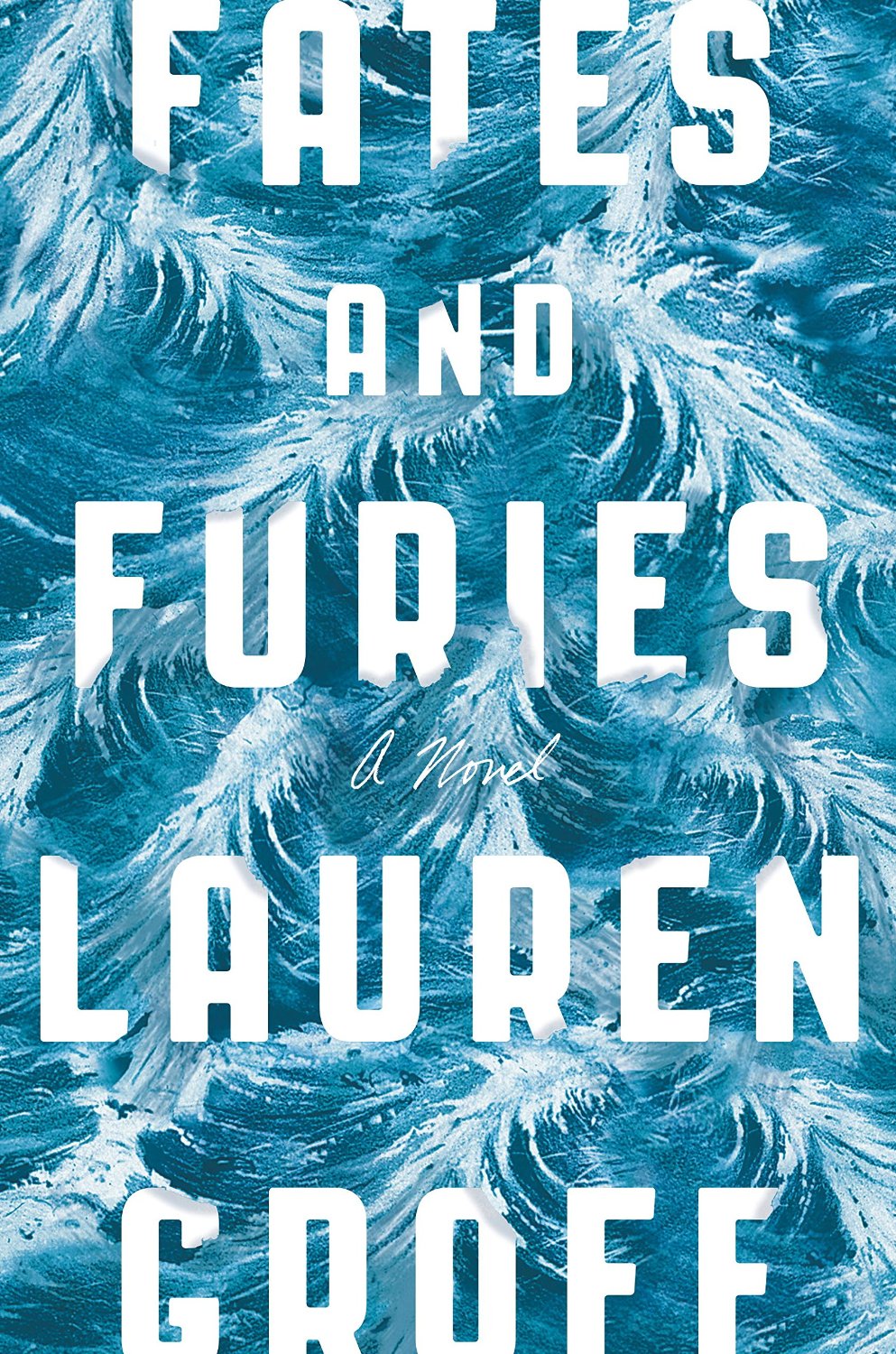Sometimes, indeed, that third entity, Marriage, does not swallow up the others so much as form its own separate whole, for better or for worse.
Their marriage picked itself up off the ground, stretched, looked at them with its hand on its hips.Fate and Furies, by Lauren Groff, is about a marriage. First we hear Lotto's version, and then Mathilde's. Surprise: they're not the same.
The novel has been making a lot of waves since it was published last fall. Obama's favourite book of the 2015. But the hype is starting to dwindle. It's when the novel came back as a zombie in this year's Tournament of Books that I finally felt compelled to read it.
I thoroughly enjoyed reading this book while I was in it. I couldn't wait to get home from work and go to bed early so I could find out what happened next. I spent several lazy Saturday hours in my reading chair with it. I mostly loved it. It gets all playwright-y and stylized at the end of part one, and I skimmed through a lot of that — just not my cup of tea — but I was pretty invested in this novel and cared how it turned out. A couple weeks on, however, I'd say the honeymoon is over, the thrill is gone, and I'm starting to wonder what I saw in it in the first place.
Here's a great but spoiler-infested review by James Woods. I wholeheartedly concur. There's just one thing he gets wrong; when Lotto finds success as a playwright, Woods notes, "Thanks to his wife, Lotto never again scrubs a toilet or pays a bill," but I'm fairly certain he hadn't done either since he met Mathilde nearly a decade earlier.
"Huge thing's your ego. Awful that you weren't the only man for her. Girl scrubs your toilets for twenty-three years, you begrudge her the life she had when you weren't around."Laura Miller in her commentary on the TOB zombie round proclaimed "Gone Girl is brilliant, a better novel than Fates and Furies" (which so much makes me want to go read Gone Girl, which movie I loved):
One thing I like about the pairing of these two books, though, is that it does highlight the degree to which I think Fates and Furies has been enjoyed by readers as a kind of satire. It’s got a privilege-assuming, rather spoiled golden boy of a husband who is completely oblivious to the reality of his wife’s life.Much is made of the novel's structure. I like the idea of changing perspectives, but these are hardly parallel narratives. Mathilde's story chronologically picks up where Lotto's left off, though through flashbacks, they do cover much of the same ground.
Given that most readers of literary fiction are middle-class women, I’d bet a lot that this is a reason for its success.
There's something like a Greek chorus that intermittently comments on the story, sometimes filling in the past, sometimes telling us the future, sometimes waxing philosophical.
[The ones made for music are the most beloved of all. Their bodies a container for the spirit within; the best of them is music, the rest only instruments of flesh and bone.]I'm not familiar with Greek mythology beyond the basics, so all that fates and furies stuff is lost on me. I'm guessing that much of the tragedy in this novel comes from the Classics, but it reads like an engrossing domestic drama regardless. At times the prose feels a little too abstracted from reality, but it's mostly beautiful.
Rachel was afraid that Mathilde, whom Rachel loved as dearly as anyone, was about to bust out of it all in a commotion of wings. Poor Lotto. Poor all of them if Mathilde left him.Mathilde's childhood and youth, it turns out, is so thoroughly fucked up, though not unbelievably, that it's no wonder she shuts the door on her past and lives a disciplined life in accordance with a strict set of rules. Lotto, on the other hand, is thoroughly oblivious, but also not unbelievably, because men can be stupid.
Was their marriage successful? I don't know.



1 comment:
Was their marriage successful? For them it was though it certainly isn't the kind of marriage most of us would want. But then no one gets the ideal marriage, not even the ones who are happy in it. I liked the book overall, wasn't wowed by it, but it was a good read.
Post a Comment